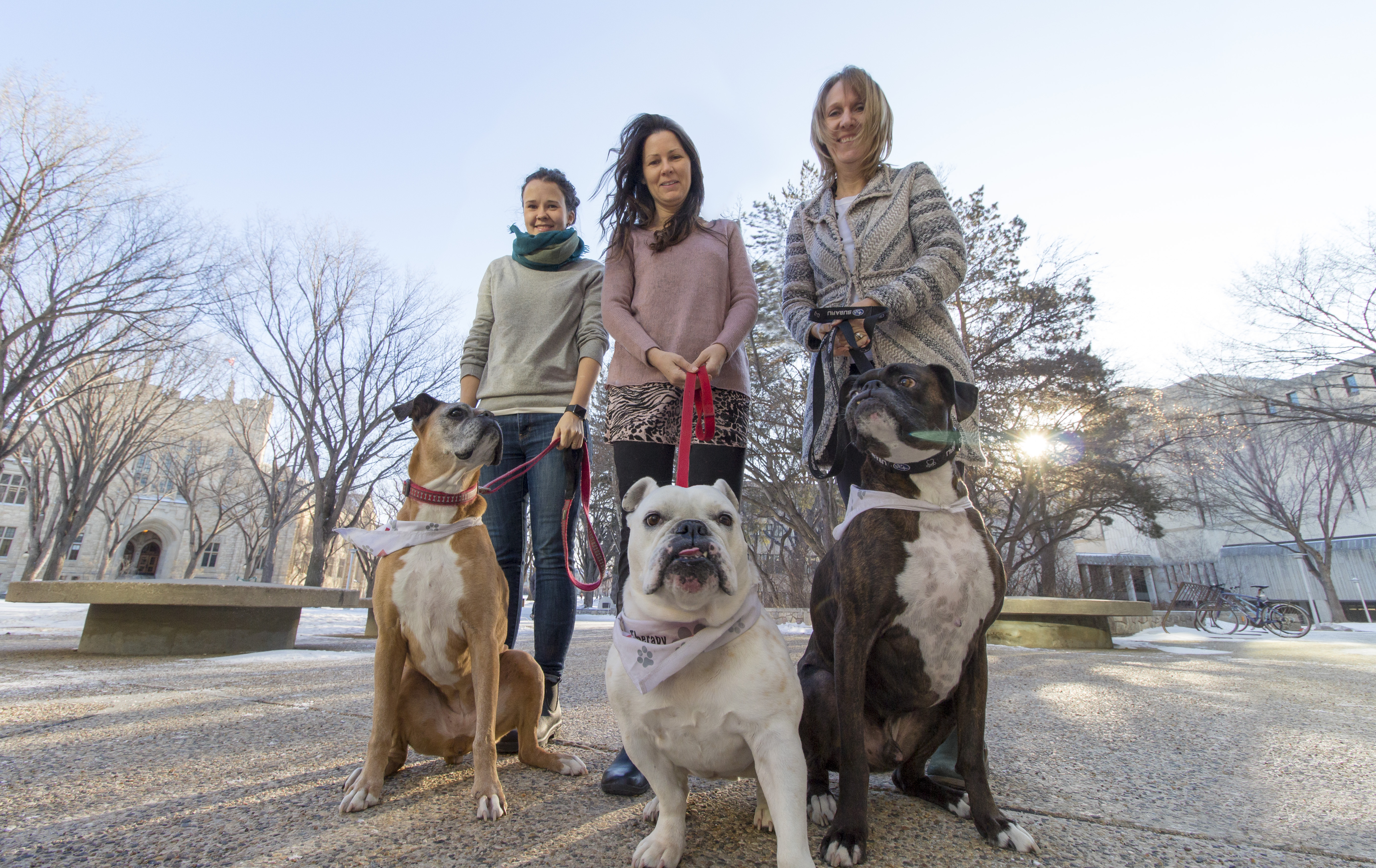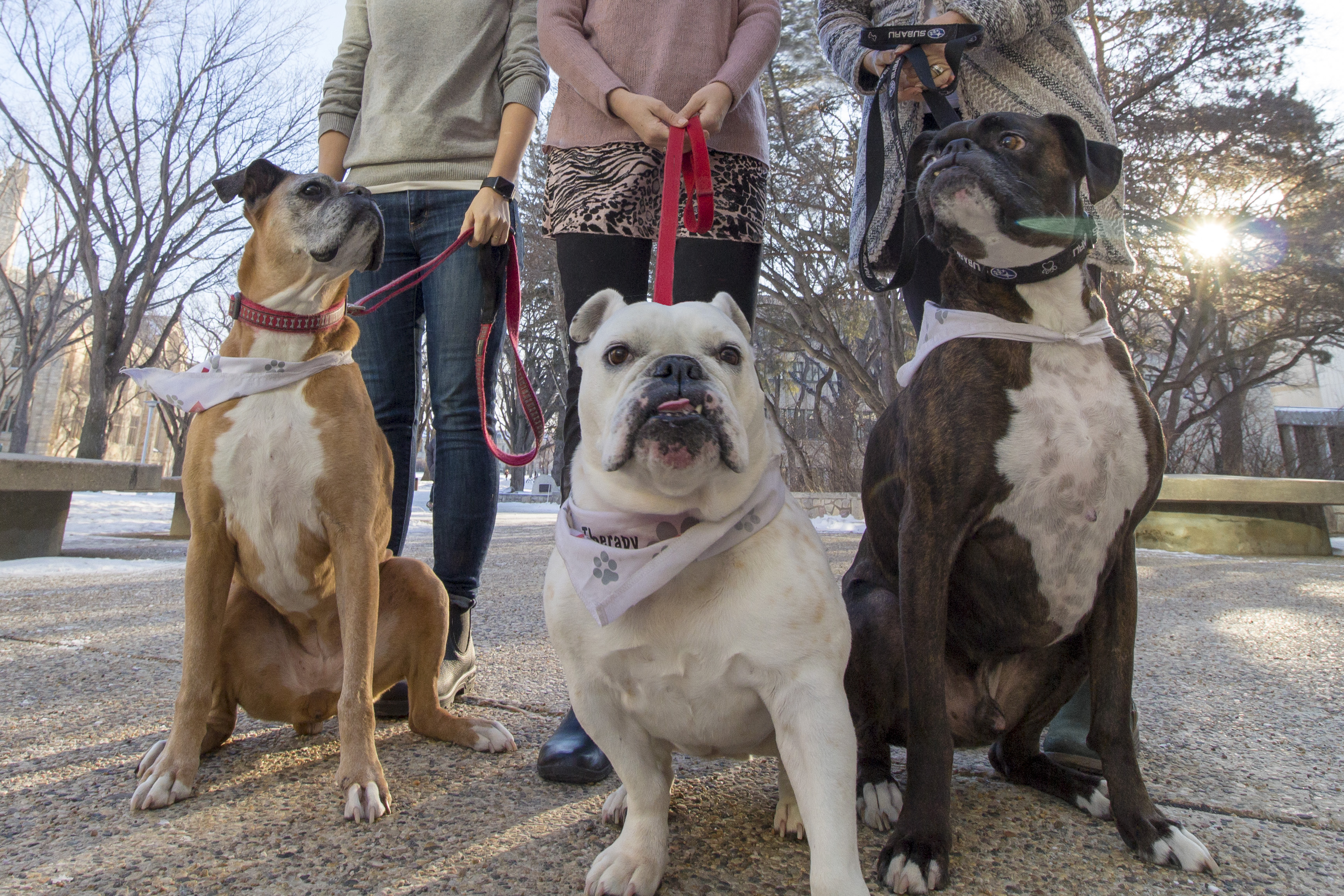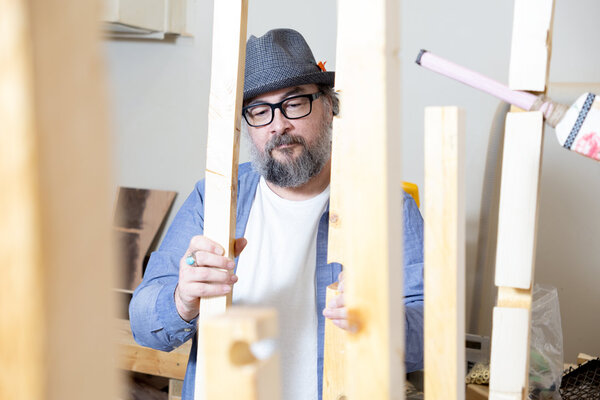
USask program seeks additional therapy dogs
Research shows interacting with animals has health benefits for humans
By Shannon Boklaschuk
A University of Saskatchewan (USask) sociology professor is encouraging faculty, staff and students to have their canine companions tested for inclusion in USask’s therapy dog program.
Dr. Colleen Dell (PhD), Centennial Enhancement Chair in One Health and Wellness, said more therapy dogs are needed on campus. The animals can help reduce stress, anxiety and depression among students and can assist in mental health crises.
The human health benefits of interacting with animals has been well documented, and Dell’s research at addictions and mental health treatment sites has shown clients experience therapeutic benefits in their healing from therapy dogs.

“There’s just so much opportunity from what we’re seeing in all our research,” said Dell, who has three therapy dogs named Anna-Belle, Subie and Kisbey.
USask’s therapy dog program, which has been in operation for five years, is administrated by Dell’s office in the College of Arts and Science, in collaboration with the Student Wellness Centre at USask and St. John Ambulance. Dell said there is currently a pool of 10 – 15 therapy dogs that come to campus with their owners, but the program needs more human and canine volunteers to be able to accommodate the numerous requests her office receives.
“We love the people who come in with their dogs. It’s awesome, and they do a great job,” she said. “But right now we’re only at every two weeks in different libraries (on campus). We could bump that up to every week, easily, and then be able to respond to all of these special requests that we get that we’re just not able to, because we don’t have the dogs.”
Dell’s office can arrange to have potential therapy dogs and their owners complete a test on campus for possible inclusion in the program. She said a good therapy dog loves people and has basic obedience skills. Faculty, students and staff who are interested in taking part in the testing with their dogs can contact program coordinator Alicia Husband at alicia.husband@usask.ca or at 306-966-6917.
Rita Hanoski, health education coordinator at the Student Wellness Centre, said many people coming to the centre present due to a mental health or wellness concern.
“So it’s a big issue on campus,” she said, noting that connecting with other people and with animals can benefit students.
“There are some people who have never connected, they’ve never interacted with a pet before, and this is an easy way to do it.”
Dell said petting a dog for five minutes increases oxytocin—which is often referred to as the love hormone—and reduces cortisol, the body’s main stress hormone. In addition to that biological response, the physical connection with the dogs is also significant, said Dell.
“It’s really important for people to have that, and these dogs are non-judgmental,” she said.
Jan. 30 is Bell Let’s Talk Day, which aims to end stigma around mental health conditions and to start a conversation about mental health. Hanoski said interacting with animals “can open up that conversation or allow that conversation to flow naturally.”
Husband said students’ faces light up when they see the dogs. She said interacting with the dogs is a positive reprieve for students from some of the stresses associated with being at university, such as taking exams.
“This is something that the university does that is providing back to them,” she said. “It brightens their day. I’ve had lots of people say, ‘Oh, this is the best part of my day.’ They just love animals and they love dogs and they’re just so happy to see them.”


